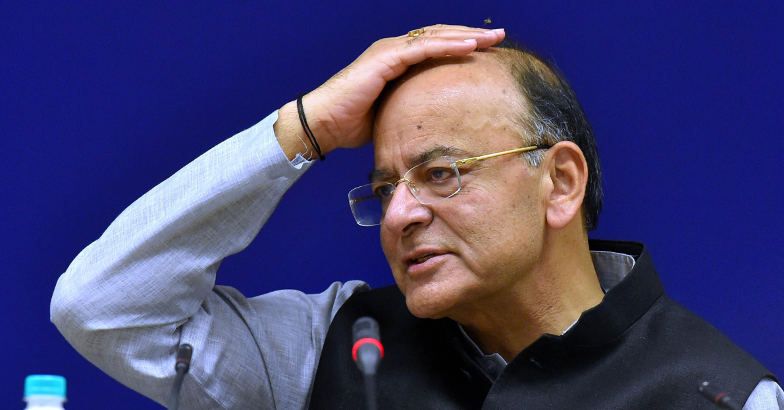New Delhi: Three months after the rollout of the new indirect tax regime, the GST Council on Friday made sweeping changes to give relief to small and medium businesses on filing and payment of taxes, eased rules for exporters and cut tax rates on more than two dozen items.
Businesses with annual turnover of up to Rs 1.5 crore, which constitute 90 percent of the taxpayer base but pay only 5-6 percent of total tax, have been allowed to file quarterly income returns and pay tax instead of the current provision of monthly filings.
Also, the turnover threshold for businesses to avail of the composition scheme that allows them to pay 1-5 percent tax without going through tedious formalities, was raised to Rs 1 crore from current Rs 75 lakh.
"Compliance burden of medium and small taxpayers in GST is being reduced," finance minister Arun Jaitley told reporters after the 22nd meeting of the council.
Small and medium enterprises had complained of tedious compliance burden under the Goods and Services Tax (GST) that was supposed to be a simple indirect tax regime which replaced over a dozen central and state taxes.
Rate cut on 27 items
Jaitley said the council also decided to cut GST rate on 27 common use items.
GST on unbranded namkeen, unbranded ayurvedic medicine, sliced dried mango and khakra has been cut to 5 per cent from 12 per cent, while the same on man-made yarn used in textile sector has been reduced to 12 percent from 18 percent.
Tax on stationery items, stones used for flooring (other than marble and granite), diesel engine parts and pump parts has been cut to 18 percent from 28 percent. GST on e-waste has been slashed to 5 percent from 28 percent.
Food packets given to school kids under Integrated Child Development Scheme (ICDS) will attract 5 percent tax instead of 12 percent.
Job works like zari, imitation, food items and printing items would attract 5 percent tax instead of 12 percent. Government contracts involving high amount of labor will be levied 5 percent GST instead of 12 percent in order to contain cost of those programs, he said.
Exporters to get refund
Exporters, who have been facing sluggish growth due to global slowdown, will get refunds for the tax paid by them on exports during July and August by October 18, he said.
For the remainder of the fiscal, they will operate under an exempted category paying a nominal 0.1 percent GST, he said, adding from April 1 attempt would be made to launch an e-wallet facility for the exporters to provide liquidity.
Jaitley said big taxpayers, who contribute 94-95 percent of the total taxes, will continue to file monthly returns and pay taxes on a monthly basis.
Taxes on restaurants
Also, a group of ministers has been asked to go into the issue of extending the composition scheme on inter-state sales as well as rationalizing taxes on restaurants.
The switchover to quarterly tax filing for small and medium businesses would happen from October 1 and they will have to file monthly returns for the first three months of GST, which was implemented from July 1, he said.
Composition scheme
With small businesses and traders complaining about the compliance burden the new Goods and Services Tax (GST) regime has put on them, the panel decided to give the option to taxpayers to avail of the so-called composition scheme if their turnover is less than Rs 1 crore as against the previous limit of Rs 75 lakh.
So far, over 15 lakh out of the 90 lakh registered businesses have opted for the composition scheme.
The tax rate for traders of goods in the composition scheme is 1 per cent, while it is 2 per cent for manufacturers and 5 per cent for suppliers of food or drinks for human consumption (without alcohol).
Service providers cannot opt for the composition scheme.
The scheme allows small businesses, including eateries, to pay 1-5 percent tax without having to deal with the three-stage filing process.
It allows small taxpayers to pay GST at a fixed rate of turnover and not go through the tedious GST formalities.
The scheme cannot be opted by supplier of services other than restaurant related services; manufacturer of ice cream, pan masala, or tobacco; casual taxable person or a non- resident taxable person; and businesses which supply goods through an e-commerce operator.
No input tax credit can be claimed by those opting for composition scheme.
Also, the taxpayer can only make intra-state supply (sell in the same state) and cannot undertake inter-state supply of goods.
Read: Latest GST news | Taxing times: GST regime hurts Kerala’s finances

























 Union finance minister Arun Jaitley addressing media after the 22nd meeting of the Goods and Services Tax (GST) Council in New Delhi on Friday. PTI
Union finance minister Arun Jaitley addressing media after the 22nd meeting of the Goods and Services Tax (GST) Council in New Delhi on Friday. PTI